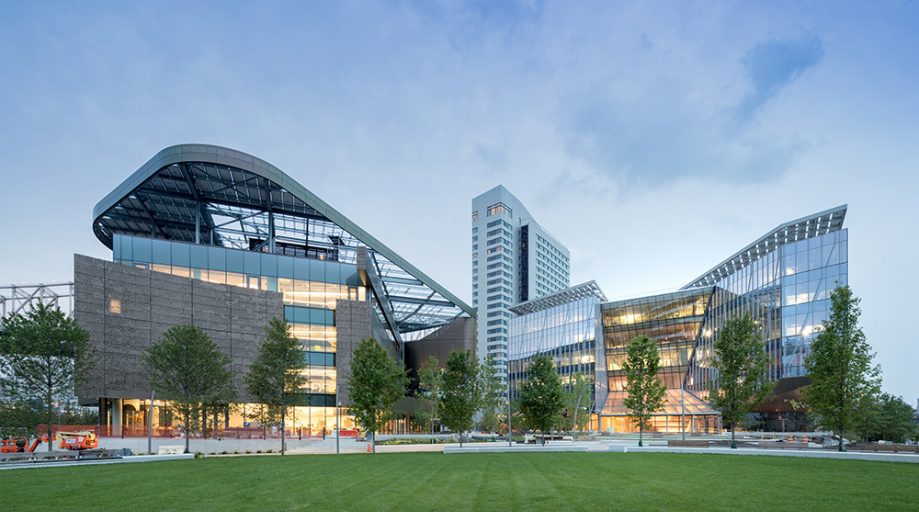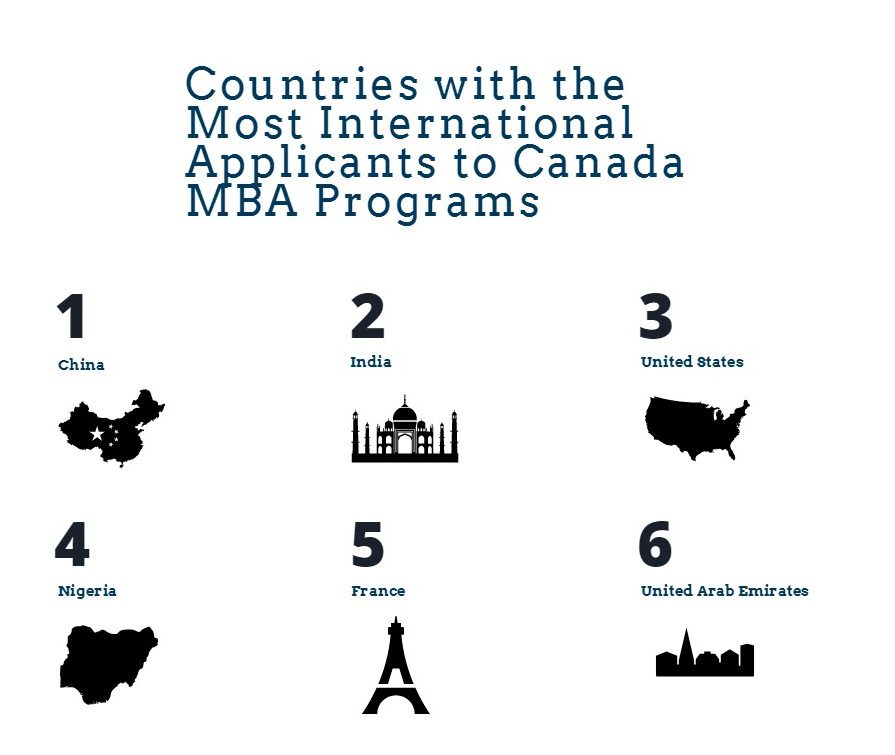Gear Up For These January MBA Deadlines

The next round of MBA admissions is swiftly approaching, with the eve of 2018 almost here. Time to mark those calendars!
New York City
The NYU Stern School of Business, Columbia Business School, and Rutgers Business School, Newark/New Brunswick are the big headliners when it comes to deadlines in the New York City metro in January.
The Forham University Gabelli School of Business, and the Syracuse University Whitman School of Management Online MBA program also have deadlines in the first weeks of the new year. Click here for more information on upcoming New York City metro deadlines.

The third round for application deadlines to Cornell’s Tech MBA on its new Roosevelt Island campus arrives January 10, 2018.
Los Angeles
The biggest Los Angeles metro business school institutions all have a slew of deadlines ready to pass within the first weeks of the new year, including the UCLA Anderson School of Management‘s full-time MBA, USC Marshall‘s part-time program, as well as the Claremont University Peter F. Drucker and Masatoshi Ito Graduate School of Management‘s part-time MBA.
Take a look at the coming deadlines in the Los Angeles metro here.
Toronto
Two Toronto metro schools have deadlines in early January, with the Ivey Business School full-time, Accelerated, and EMBA deadlines all falling on January 8, 2018. The second round deadline to the University of Toronto Rotman School of Management‘s full-time MBA also falls on January 8.
Take a look at the coming deadlines in the Toronto metro here.
Chicago
Two of the most prominent business schools in the entire Chicago metro—Chicago Booth and Northwestern Kellogg—feature a bevy of full-time, part-time, and Evening MBA deadlines before January 10. As well, the Quinlan School of Business at Loyola University’s full-time MBA for its annual spring intake arrives on January 15, 2018.
Just outside of the city, on the near border of Indiana, the Notre Dame Mendoza College of Business’ second round deadline for its full-time MBA program is set for January 9.
Get familiar with the coming deadlines in the Chicago metro here.

The second round of deadlines for the Northwestern Kellogg part-time and full-time MBA programs arrives on Jan. 10, 2018.
Boston
In Boston, the heart of America’s higher education, every January is a major month for several of the country’s most prominent MBA programs. Indeed, Harvard Business School and MIT Sloan, as well as the Questrom School of Business at Boston University, the Carroll School of Management at Boston College, and Northeastern University’s D’Amore-McKim School of Business all have MBA deadlines right at the beginning of the new year for various MBA programs.
Take a look at the coming deadlines in the Boston metro here.
For updated deadline information in Philadelphia, Washington DC, Baltimore, Atlanta, Dallas, Houston, Denver, San Francisco, San Diego, Seattle, and London, click here.
Ivey MBA Graduates Making Big Wins in the World of Hockey

MBA graduates from the Ivey Business School at Western University Canada, alongside other business alumni from the university, are making big wins in the world of sports.
From the intense academic experience inside Ivey classrooms to international study trips and strong alumni networks, graduates of Ivey’s many business programs, including their MBA degree, are changing the game for hockey in Canada and across the world.
Not every MBA’s success in hockey is even relegated to work off the ice. For Dave Barrett, MBA ’04 and PhD ’14, who helped coach the Western Mustangs Women’s hockey team to a championship title in 2015, there are many similarities between coaching players on the ice and priming students for business success.
“Shaping the environment that they work in and what they think about themselves is a lot of what we do here at Ivey,” Barrett comments. “It’s creating that culture—you bring good hockey players in and you have to shape them into a unified force. It’s the same here, too.”
Other major players from Ivey are finding ways to connect their love of business with a passion for hockey. Karin Adams, HBA ’06 and MBA ’14, has allowed her passion to lead her to a career in the Total Rewards department of the Maple Leaf Sports & Entertainment company. As Senior Director of the department, Adams is responsible for building a compelling employee value proposition for employees company-wide.
“As we continue to grow the breadth of our portfolio, it has different demands on the talent needs the organization has,” Adams says. “It changes where we need to be looking for talent and what we are doing in order to recruit and retain them.”
In addition to the MBA alumni, Ivey graduates of the HBA and MSc department can also be found making an impact in the world of hockey. Among them are John Chayka, the 28-year old General Manager of the Arizona Coyotes, HBA ’14, who was hailed as “one of the NHL’s 10 smartest off-ice hirings of the 2015 off-season,” and Dario Zulich, HBA ’86, who plans to use hockey to rebuild tourism and revitalize the community of Greater Sudbury.
Finding The Best Toronto Accelerated MBA Programs

One-Year or Accelerated MBA programs give students the opportunity to gain the strong business foundation of an MBA education in half the time as a traditional MBA. Students in accelerated MBA programs can also reduce the overall cost of their degree while also minimizing the amount of time spent without earning a full-time income.
Last summer, we took a look at some of the city’s best accelerated program offerings. However, we have updated our overview, including more of our favorite Toronto school’s with uniquely exciting accelerated programs.
The Toronto Accelerated MBA Programs You Need To Know
Schulich School of Business – York University
The Accelerated MBA at York University’s Schulich School of Business gives students the chance to dive straight into the second year of their degree program. With the option to pursue the degree either full or part-time, students can complete the Schulich MBA in as little as eight months. The program is reserved for students who have completed either a BBA or BCom degree in Canada within the past ten years that is similar in structure to the BBA at Schulich, but students without this requirement may still be eligible for some form of accelerated degree.
DeGroote School of Business – McMaster University
The Accelerated MBA at the McMaster University DeGroote School of Business can be completed in as little as eight months if pursued on a full-time basis. Students in the accelerated program are exempt from first year MBA courses and will only pay half the tuition of the two-year program. The accelerated program is designed for students who earned an undergraduate business degree in the last ten years, maintained at least a B average in the final two years of their undergraduate degree, and have at least one year of professional work experience.
YOU MIGHT ALSO LIKE: Canada’s MBA Programs are Rising
Ivey Business School – Western University Canada
The One-Year accelerated MBA program at the Ivey Business School at Western University Canada is designed for ambitious students who want to further develop their leadership ability and accelerate their career. The Ivey MBA gives students real-world experiences through global learning opportunities and projects that provide hands-on business practice. The Ivey curriculum is centered around a unique case study method, which uses over 300 cases each year to allow students to practice real business challenges.
Rotman School of Management – University of Toronto
For advanced business school students with more professional experience, the Rotman School of Management at the University of Toronto offers a uniquely inviting One-Year Executive MBA; perfect for upper level managers looking to further develop their skills in management, decision-making and leadership. Within 13 months, the EMBA will provide students with hands-on leadership experience designed to change the way MBAs approach business and make decisions. The degree is also designed work around a student’s career, providing the opportunity for students to constantly be applying their education outside of the classroom.
Ted Rogers School of Management – Ryerson University
At Ryerson University’s Ted Rogers School of Management, students can select from a number of different formats in which to pursue their MBA. Students with a BBA, BCom or equivalent degree and at least two years of North American work experience have the option to earn their MBA in just 12 months. The Ted Rogers MBA program is centered around experiential learning, with events like Integrative Week/Weekend, allowing student work to be critiqued by industry professionals. Students will also be required to complete their final semester centered around real-world application of theory and analysis learned in the classroom through a capstone project and internship.
Canada’s MBA Programs are Rising

The recent release of the GMAC 2017 Prospective Students Survey Report revealed some mixed revelations. While the status of smaller U.S. school MBA programs may be up in the air, international programs, particularly in Canada, are looking rosier than ever.
Overall, schools in Canada and Europe saw a 50 percent-plus increase in application volume from international candidates, of which GMAC speculates may be a result of political turmoil, particularly in the United States. This is a direct contrast from four years prior, in which less-than half of the Canada, UK, and other European business schools were seeing international applicant growth.
In the GMAC survey, an anonymous Canadian full-time MBA also noted, “The US presidential election has had a impact on our application numbers. Many international students choose Canada as their first choice.”
Niki da Silva, the Managing Director of the full-time MBA program at the Rotman School of Management at the University of Toronto, recently spoke with the Globe & Mail after the release of the report, saying, “This is our opportunity. We have to be anti-Canadian in this moment and really talk about what we are doing. We don’t tend to do that but we need to.”
By The Numbers
Results from the survey found subtle yet distinct differences between the international applicant pools in the major MBA location destinations.

In the United States, Europe, and Canada, according to GMAC, the two most prolific countries with international applicants were unilaterally India and China, which came in either first or second place for each region. However, for Canada, the remaining top 10 international countries with high applicant pools differed slightly from the U.S. and Europe, especially regarding Middle Eastern and North African countries. The United Arab Emirates (6th most), Tunisia (9th), and Iran (10th) were no where to be found in either the U.S. or European top ten.
Breaking the applicant pools down further, GMAC found an unsurprising correlation between the distribution of citizenship by application for Canada and the U.S. and the new data trends. After Europe, which had the most diverse applicant pool (a tricky stat since Europe is qualifying every country on the continent, while the U.S. and Canada are counted as singular entities), Canada had the world’s second biggest international pool of applicants, with less than 50 percent of Canadian business school students having official Canadian citizenship.
Domestic applications, in contrast, are actually down. But the international pool in Canada is swelling, creating substantial overall growth.
“International applicants comprised the vast majority of applications to business programs in Canada—64 percent of MBA applications and 88 percent of business master’s applications.” – GMAC
Gregg Schoenfeld, GMAC’s Director of Research, also noted upward trend for Canadian schools, saying, “This is the first time in the past five years that the majority, in fact three-quarters [of Canadian schools in the survey], are saying they are growing international volumes.”
“From a speculative point of view, it seems that the U.S. political climate has essentially driven candidates to Canada,” he continued.
YOU MIGHT ALSO LIKE: The Highest Starting Salaries for Toronto MBA Grads
The move to enroll more international applicants in Canadian schools started to emerge several years ago. Following lower periods of domestic enrollment, Canada’s MBA programs made a concerted effort to bring in more talent from abroad, creating a multi-year spring in growth that has not only benefited school enrollment, but fostered a positive international environment.
According to Global Affairs Canada, the result has been a positive economic boon as well. Upwards of 90,000 new jobs were created for Canadians just two years prior, while adding $10 billion to the country’s economy.
Tim Daus, Executive Director of the Canadian Federation of Business School Deans, previously noted that the trend was partly made possible because of the country’s flexible immigration policies, saying, “Canada’s visa requirements are much more flexible than other countries’, which gives us an edge. That makes a big difference for students who want to stay and work afterwards.”
Canadian Accolades
The substantial growth Canadian business schools have seen may not solely be the result of political overtones, rather, that many of the country’s best institutions only continue to improve.
The Schulich School of Business at York University in Toronto earned some hefty recognition from Forbes‘ recently released “Best Business Schools” global rankings, earning the 8th spot among the best international two-year program in the world. Schulich grads, Forbes claims, can expect a five-year net gain of over $48,000.
Last year’s Bloomberg BusinessWeek ranking of the best non-U.S. business schools also recognized both the Ivey Business School at Western Canada University and the Rotman School of Management among the top 25 programs in the world. Both the aforementioned Ivey and Rotman programs were recognized among the world’s 100 best by the Financial Times this year as well.
Highest Paid Starting Salaries for Toronto MBA Grads

Earning an MBA in Toronto can be a practical decision for a myriad of reasons. Forbes named Canada the best country for business in the G20, with Toronto as its formal financial and business capital. It stands to reason Toronto may be one of the strongest areas for business not just in North American, but around the world as well. Its advantageous position close to the U.S. border makes the city a hotbed of international commerce, and as the fourth largest city on the continent, Toronto provides a wealth of opportunities for motivated professionals.
As though these reasons weren’t incentive enough to pursue higher education in Toronto, the city has the second highest quality of life in North America, according to the Mercer Quality of Living Survey. The city’s vital university system is full of talented and aspiring industry leaders ready to launch their own careers, readily taking advantage of everything the city has to offer.
For those of you planning to pursue your MBA in this cultural and fiscal epicenter, we’ve laid out which school grads have the highest starting salaries in the city.
The Highest Paid Toronto MBA Salaries
Ivey Business School—Western Canada University
Graduates from Ivey Business School will not be disappointed with the opportunities made possible by their degree. In 2016, 90 percent of graduating MBA students looking for jobs had received an offer by September and, by December, an impressive 96 percent of students were fielding offers. The average starting salary for grads in 2016 was $104,007 ($84,098 USD). The base salaries ranged from $40,000 to $192,000 ($32,344 to $155,255 USD), with the higher end of this range going to students who pursued consulting jobs. Since this program is just one year long, the high average starting salaries for students indicate a considerable return on investment, in terms of both money and time. Bloomberg BusinessWeek also ranked Ivey’s MBA as the best MBA program in Canada for the past three years.
YOU MIGHT ALSO LIKE: Toronto’s Best Nonprofit MBA Options
Rotman School of Management—University of Toronto
Those looking for an MBA education that will provide ample chance to earn a generous starting salary may be impressed with the possibilities open to Rotman School of Management grads. The average base salary for graduates in 2016 was $92,524 ($74,819 USD). The 2016 class had an employment rate of 80 percent within three months of graduation and an 85 percent employment rate after six months. The range of starting salaries for the class of 2016 went as high as $214,737 ($173,486 USD) in the legal services industry. Moreover, the Financial Times has named Rotman the best business school in Canada every year for over a decade.
Schulich School of Business—York University
An average starting salary of $91,860 ($74,282 USD) for the class of 2016 makes a Schulich School of Business an ideal place for motivated students to jump-start their careers. With 89 percent of MBAs from the class of 2016 hired within three months of graduation, Schulich grads clearly have a competitive edge in the business community. Schulich’s program is also renowned for its flexibility. Students can switch seamlessly between part-time and full-time enrollment, and can choose to accelerate their program for the opportunity to earn their degree in just eight months.
6 New Executive Education Programs Coming to Ivey Business School

The Ivey Business School at Western University in Toronto is revamping its executive education offerings, adding six new programs to address Canada’s evolving business sector.
“The Canadian business market has dictated to us the key competencies needed to remain relevant and successful in today’s global business environment,” said Mark Healy, Ivey’s Executive Director of Executive Education, in a press release. “I’m pleased to be able to address those needs with the launch of these six programs.”
The Ivey Executive MBA program already helps advance the careers of professionals, but these new additions will only further the school’s efforts. The programs will begin in fall 2017 and be offeredat the London and Ontario campuses, as well as Toronto.
Corporate Reputation Management
This “immersive” program will teach students how to plan for, respond and recover from situations where a business’ reputation is at risk. Once a company loses its rep, well, everything else goes down the drain, too. It’s important that professionals know how to handle those events.
Preparing for Disruption
One thing’s for sure: In business, always prepare for the unexpected. Sometimes, this looks like technological innovations. While good for the consumer, such change isn’t always good for a business. This addition will help participants look critically at their businesses and find any potential vulnerabilities or places where the market might negatively impact them—and then brainstorm to make sure that doesn’t happen.
Leading With Business Analytics
Data and numbers really are the future. This program will help businesses use these information to their benefit by showing them how other major players use data to stay competitive. Students will also learn the basics to some data analysis tools to stay in the loop themselves.
Mastering FinTech: Strategies for the Future
How does one protect themselves from the emerging FinTech market? Ultimately, those employed in the banking, finance or insurance sectors will benefit most because they’re the ones this technology threatens most. The program will show them how to create a proper response plan and even how to take advantage of this technology before competitors use it against them.
Design Thinking: Driving Innovation
Design is everything, they say. This couldn’t be more true in the world of business and customer service. This new program aims to teach participants all they need to know about using design to lead and ideate. This type of innovation is especially “crucial” to compete globally.
Many families pass their business down from generation to generation. There’s a science to doing that right. That’s where this program comes in. A successful transition requires specific strategies that address growth and trust. The Ivey School encourages families to take part in this program, but it requires a nomination.
